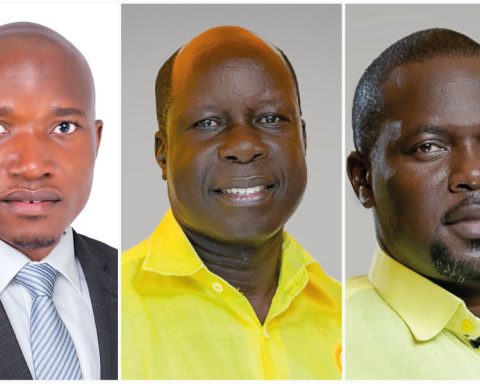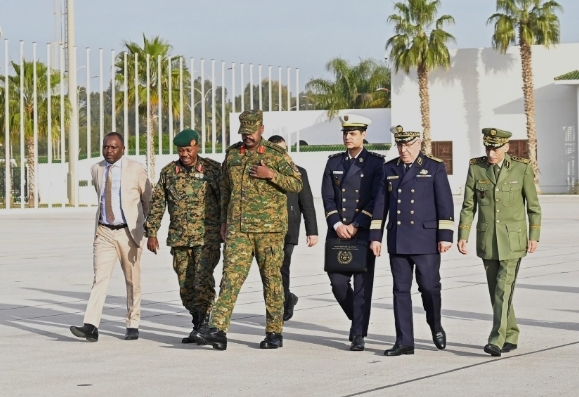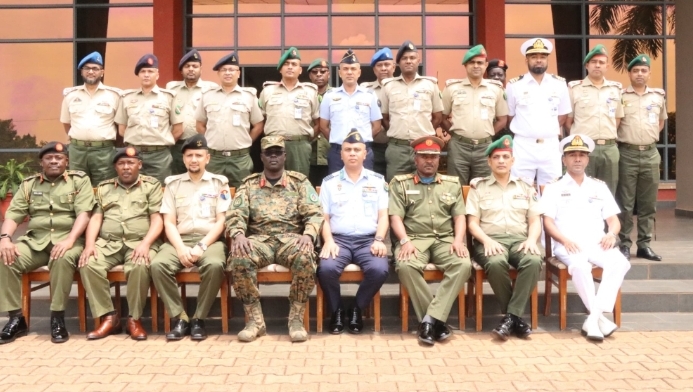The June 16 attack on Lhubiriha Secondary School in Mpondwe, Kasese, at the border with DRC, was a tragedy waiting to happen. This is despite the great assurances that Ugandans generally enjoy in terms of peace, tranquillity and security. In the military, they say that when there is peace, that’s when you train harder so that in times of war, you fight easier. Failure to prepare during peaceful times means that any time you can be caught unawares.
Let me first take the moment to honour the memory of the students murdered in that attack and commiserate with their families and the nation at large. Their killing hurt us all, the peace-loving and God-fearing citizens, but we know that the security forces and the Almighty Creator will avenge us. Those children did not have to die but their death will not be in vain. If ADF was celebrating a silver jubilee since the 1998 Kicwamba massacre, that’s up to them. True Ugandans are peace-loving people; they love to be happy and to let others be happy, they coexist, and they celebrate each other!
That incident was waiting to happen because, at any one time, bad people are always plotting evil-how to kill, steal and destroy. Someone once said “The bad people never sleep. Why should the good ones sleep?” This is a challenge!
The Kasese incident happened not due to the absence of security but because of so much security that people, especially leaders, have thrown caution and a sense of duty to the wind.
The military and sister agencies have done their utmost to make insurgents lose their appetite for blood by squeezing them home and away. They have forced them to drop their guns which must be a preserve of the Government armed forces for the security and safety of Ugandans. Failing to roam freely with guns, the killers have resorted to the use of odd and cruel substitutes such as knives, machetes, iron bars, fire, improvised explosives, and so on. Their ability to terrorise Ugandans has been so seriously degraded that they have resorted to attacking soft targets since they can’t face the direct firepower of the armed forces. Going for the vulnerable not only exposes their bloodthirsty agenda but also turns Ugandans against them.
If any persons with normal working minds have previously looked at them with a soft spot, for whatever reason, now they have lost all sympathy. If they can attack a school; another time they attacked a church on the Congo side, they have no qualms attacking a hospital or a kindergarten. This means that everyone is a target.
Sparing a breastfeeding woman was just a ruse to confuse us but we see them by their general works like they have done in the past and in Congo where they butcher and cook people in pots. It just means that when the woman is no longer breastfeeding, they will come for her and the toddler.
Another positive outcome from the attack is to refocus us to be vigilant at all times, and serious to ensure that all controls are in place to prevent a recurrence of such incidents. While the security forces are up to the task, the civilian leadership leaves a lot to desire. If the great asset of several Ugandans decided to be the eyes of one another and the eyes of the state, bad elements would not survive.
I want to put this at the feet of local leaders such as Local Council leaders at the grassroots; criminality thrives because these leaders have abdicated from their duties and betrayed the trust Ugandans put in them. Every single inch of Uganda is governed by a representative of the Government, with systems in place for reporting any unauthorised presence and action.
It’s not possible to have police and the military deployed at every homestead because such personnel numbers have never, and will never, exist. But that gap should be filled by the network of LCs who should be fully in charge of their areas of jurisdiction, knowing their residents and the visitors (or strangers) coming in. Some LCs are, unbelievably, detached from the ground.
They don’t know the people in their localities and the people don’t know them. Some are in positions to “cut deals” in land and property, plus extorting money for stamps. At worst, some are engaged in working with and protecting criminal elements. This is a low calibre of leaders without an iota of cadre ship or patriotism.
During the days of the Resistance Councils (RCs), the Chairpersons and their committees were up to the task, of practising “resistance” against bad elements and being fully in charge of their areas. Where did that culture go? Does democracy dilute the milestones of the revolution like that?
In Rwanda, anybody arriving in any locality has to go through a process. One must be introduced to the local authorities, the purpose of their visit recorded, how long they intend to stay, and so on. His or her details are taken and followed up. That way, it’s very easy to detect illegals. This leaves little room for illegals to find anywhere to place their feet and cause problems.
LCs should rise to the occasion and realise that we live in extraordinary times. Leadership is seen in action, not in titles. They should take charge of their areas and report upwards so that the top is in the know of what’s transpiring everywhere. They should have registers of residents and those operating within. LCs should be linked to Immigration for ease of tracking the movement of people in and out of the country. Security works best with an effective intelligence network which must be rooted in the basic administrative unit-the village.
The author is the Deputy Presidential Press Secretary
Contact: faruk.kirunda@statehouse.go.ug
0776980486/0783990861
7 total views , 1 views today



























